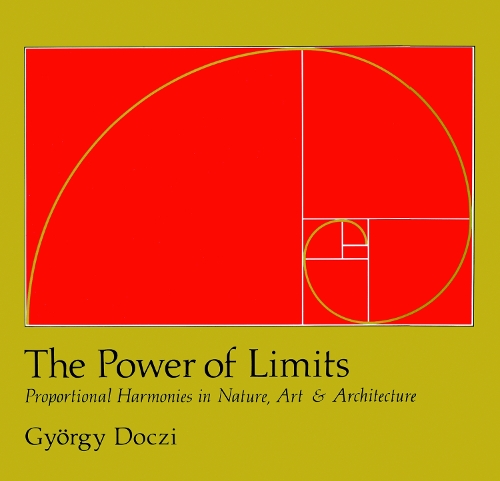
The Power of Limits: Proportional Harmonies in Nature, Art, and Architecture
(Paperback)
Publishing Details
The Power of Limits: Proportional Harmonies in Nature, Art, and Architecture
By (Author) Gyorgy Doczi
Shambhala Publications Inc
Shambhala Publications Inc
15th November 2005
29th November 2005
United States
Classifications
General
Non Fiction
Architecture
Reference works
709
Physical Properties
Paperback
160
Width 268mm, Height 244mm, Spine 12mm
476g
Description
Proportional harmonies in nature, art, and architecture. A language of patterns seems to operate throughout the creative processes of both nature and humanity, from the geometry of a snowflake to the sonnets of Shakespeare to the architecture of the Japanese teahouse. The author's discovery, vividly illustrated here, is that certain proportions occur over and over again in all these forms. Patterns are also repeated in how things grow and are made - by the dynamic union of opposites - as demonstrated by the spirals that move in opposite directions in the growth of a plant. The award winning architect Gy rgy Doczi translates the language of patterns and shows how we, as humans, are included in the universal harmony of form, and suggests that the union of complementary opposites may be a way to extend that harmony to the psychological and social realms as well.
Reviews
"Those who read this book are in for a treat, for they may discover a new way of seeing the world, literally. Doczi is to be commended for his scholarshipand vision." Library Journal
"The clearest, best-illustrated book on the subject." Ballast Quarterly Review
"A stimulating, eye-opening book for all artists and designers, students of science and psychology, this visually stunning volume unveils the astonishing similarities between the designs of nature and human creativity in art and society." Pacific Northwest Booksellers Association
"Doczi's book is an excellent introduction to the study of proportions and is also a beautiful, poetic expression of the harmony of the universe." New Age
Author Bio
Gy rgy Doczi practiced architecture in Hungary, Sweden, Iran, and the United States. He initiated a permanent exhibit on form in nature and art at the Pacific Science Center in Seattle, and was a founder of the Friends of Jungian Psychology Northwest. He died in 1995.
